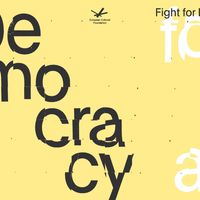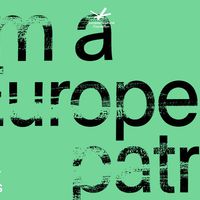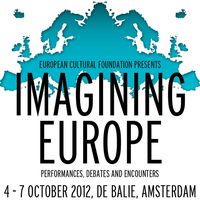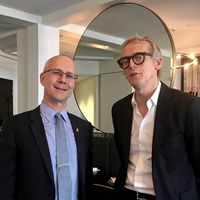ECF announces first granted projects for Democracy Needs Imagination

The European Cultural Foundation (ECF) launched in February the new action grants call Democracy Needs Imagination looking for ideas, projects, and experiments that breathe new life into European democracy. The first granted projects have been announced.
Among them - take a look at Europe Talks, a platform to bring together people with contrasting political views from across Europe for face-to-face debates. Would you like to meet a European neighbour who has a different view of the world? Then participate in "Europe Talks" – along with thousands of other Europeans.
Do we Europeans know ourselves? Do those of us not from France know how the French truck-driver who joined the yellow-vests actually thinks? What about the Poles who vote for PiS and the Hungarians who support Viktor Orbán? Do some in Britain regret their vote in favor of Brexit? What about the Greeks, who used to make daily appearances in European media but who have lately faded from the spotlight? Do we Europeans know enough about each other?
We're not so sure. That's why die Zeit Online has joined forces with other European media outlets to launch Europe Talks, a platform to bring together people with divergent political views from across Europe for face-to-face debates. Until the European Parliament elections in May, you will find a small box on the ZEIT ONLINE website and on the pages of 15 media partners. Included are seven politically controversial yes-or-no questions that are currently under debate in many EU countries. Should all European countries reintroduce strict national border controls? Should rich European countries support those states that are less well-off?
Once readers have answered these seven questions and subsequently registered, the initiators will try to bring them together with another European from a neighboring country – someone who has answered the questions completely differently. In mid-April, readers will be introduced to their debate partners. As soon as both of them have agreed to a meeting, they can establish contact to each other via email.
On the afternoon of May 11, they then have a choice: Either get on the train, climb into a car or board an airplane to meet a debate partner in person at a place of your choosing for a walk or a coffee. Or they meet up in a video conference for their debate about Europe. If all goes well, strangers from Belgium and France, Austria and Italy, Germany and Poland will meet up for a face-to-face discussion. The project partners will also be inviting some participants to Brussels, where a festival will take place, co-organised with all media partners at the conclusion of Europe Talks.
The ECF call for creative cultural action grants is still open, with the deadline whenever the funds are exhausted: https://culture360.asef.org/opportunities/european-cultural-foundation-apply-cultural-action-grants-european-democracy-needs/
Similar content
deadline
27 Sep 2019
from - to
04 Oct 2012 - 07 Oct 2012
posted on
18 May 2011
By culture360
19 Oct 2018





